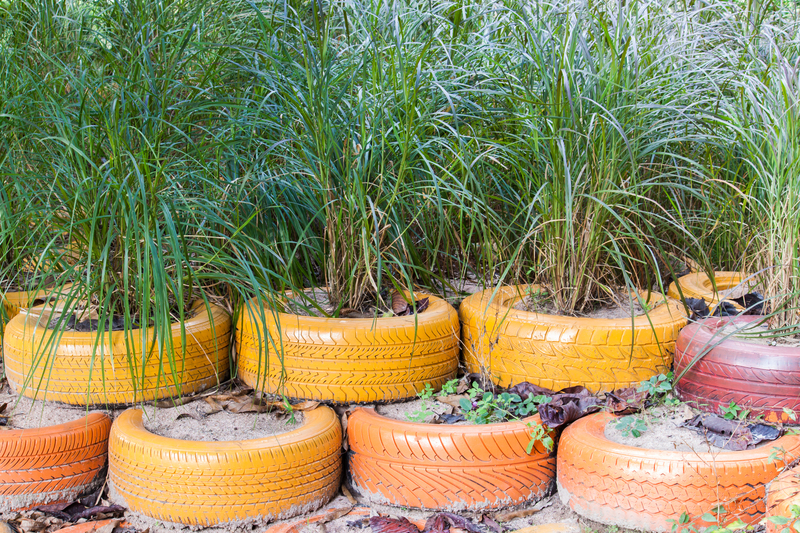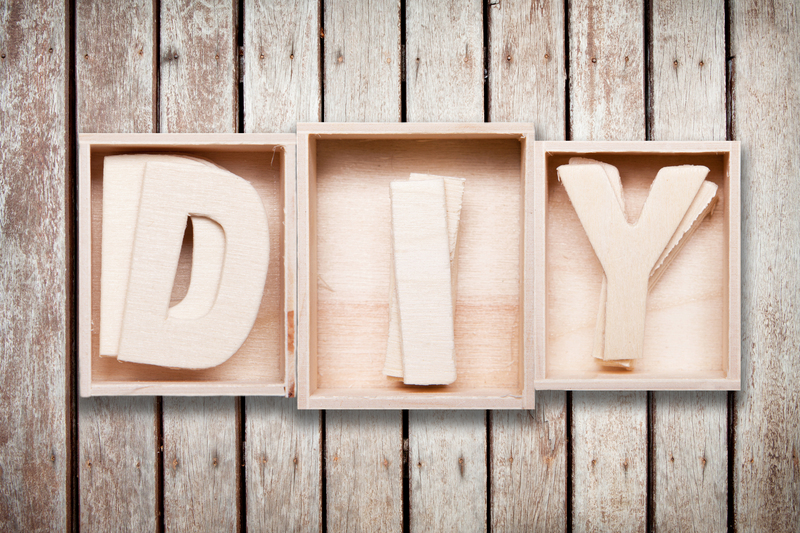How to Dispose of Bulky Waste Items Without Breaking the Bank
Bulky waste disposal can be a challenge for many homeowners, renters, and businesses. From old couches and mattresses to appliances and large electronics, these oversized items require more than just a quick trip to the trash can. Fortunately, getting rid of large junk doesn't have to drain your wallet. In this comprehensive guide, you'll learn affordable ways to get rid of big waste items, understand your local options, and discover smart tips for disposing of bulky items responsibly and inexpensively.
Understanding Bulky Waste: What Qualifies?
The term bulky waste generally refers to items that are too big to be collected by regular curbside trash or recycling programs. Examples include:
- Furniture: sofas, chairs, desks, tables, mattresses, and bed frames
- Appliances: refrigerators, washing machines, dryers, ovens
- Electronics: old televisions, large computer monitors
- Outdoor equipment: lawnmowers, grills, bicycles
- Construction debris: bathtubs, doors, windows, cabinets

Why Proper Disposal of Bulky Waste Items Matters
Improper disposal of bulky items can harm the environment, pose safety risks, and even result in fines. Many large waste items contain materials that can be recycled or require special handling to prevent pollution. Responsible and cost-effective disposal helps:
- Conserve natural resources by recycling
- Prevent illegal dumping and its consequences
- Keep neighborhoods clean and attractive
Top Low-Cost (or Free) Methods to Get Rid of Bulky Waste
1. Take Advantage of Municipal Bulky Waste Collection Programs
Many cities and towns offer periodic free bulky waste collection days or allow residents to schedule pickups for large items. To use these services:
- Check your municipality's website or call the public works department.
- Find out the schedule--some allow annual pickups, others have specific dates a few times a year.
- Learn the guidelines: which items are accepted, how to prepare them, and where to place them on collection day.
2. Donate Usable Items to Charity
If your bulky waste is still in decent condition, donating it can be a win-win solution:
- Nonprofits like Habitat for Humanity ReStores, Goodwill, or The Salvation Army often accept furniture and working appliances.
- Many offer free pickup services. Schedule in advance and check their accepted items list.
- Get a donation receipt: you may qualify for a tax deduction.
3. Sell or Give Away Items Online
Often, what you consider junk might be valuable to someone else. List your unwanted bulky items on:
- Facebook Marketplace, Craigslist, Freecycle, OfferUp, or Nextdoor
- Apps like LetGo or local community groups
4. Utilize Your Local Landfill or Transfer Station
Most landfills and transfer stations accept bulky waste from the public for a modest fee. If you have a vehicle that can handle the item, drive it over and pay a small charge, which is often much cheaper than hiring a junk removal service.
- Contact your local dump or recycling center for their pricing and hours.
- Some areas run free disposal days for residents--watch for announcements.
5. Break Down and Recycle Parts
Many large items can be dismantled and recycled by separating their materials:
- Remove metal frames from furniture and bring to a scrapyard--they may even pay you for the metal!
- Recyclable wood, cardboard, and plastics can go to specialized recycling centers.
- Electronics often have dedicated e-waste recycling options--check local listings.
6. Ask Your Waste Hauler about Bulk Item Pickup
Your regular trash collector may offer options for one-time bulky waste pickups for a nominal fee.
- See if your trash contract includes an annual bulk pickup, or if you can add it for a small extra charge.
- Prepaying or bundling bulk pickups can provide a discount.
7. Community Junk Removal Events and Cleanups
During spring cleaning season, many neighborhoods or civic groups organize free bulk waste events. These are especially common in apartment and HOA-managed communities.
- Watch for flyers, online posts, or neighborhood bulletin boards.
- Event organizers often hire a large dumpster, and you can drop off your bulky waste for free.
Cost-Effective Tips for DIY Bulky Waste Disposal
- Plan ahead to avoid last-minute, expensive junk removal calls.
- Reuse moving boxes, tarps, or dollies to transport items efficiently.
- Team up with friends or neighbors for truck or trailer rentals.
- Disassemble oversized items so they fit in your vehicle or designated trash area.
- Search for local recycling centers that offer free drop-offs for certain materials like metal or electronics.
What If You Need Professional Help?
Sometimes, handling large junk removal yourself may not be practical due to size, weight, or time constraints. If you do need to hire out, follow these tips for cost-effective professional bulky waste disposal:
- Get quotes from several providers--compare rates and minimum charges.
- Ask about shared or group pickups with neighbors for a volume discount.
- Review your city's preferred vendors--some may offer resident discounts.
- Clarify what's included in the fee: will the crew carry items from inside, or do you need to place them at the curb?
- Book during off-peak times when rates may be lower.
How to Dispose of Specific Bulky Waste Items on a Budget
Old Furniture
Most communities have special rules around furniture disposal. Here's how to save money getting rid of couches, mattresses, and more:
- Donate if gently used--free pickup is common.
- Sell or give away online using "curb alert" or "free stuff" sections.
- Disassemble if possible to fit in your vehicle for the landfill drop-off, reducing fees.
- Some mattress manufacturers offer recycling programs or take-back days.
Appliances
Your old fridge or washing machine may be valuable for scrap, or even eligible for a cash rebate:
- Utility companies sometimes offer appliance recycling rebates for old, inefficient models.
- Many scrap yards accept appliances--call ahead for preparation steps.
- If it's working, list it for free online or call charities that furnish homes for people in need.
- Most large retailers will haul away your old appliance for a small fee or free when delivering a new one.
Large Electronics (TVs, Computer Monitors)
E-waste requires special care due to hazardous materials. For inexpensive disposal:
- Participate in community e-waste collection events.
- Retailers like Best Buy or Staples sometimes accept old electronics for recycling.
- Check with the manufacturer or local landfill for drop-off policies.
Yard and Construction Debris
Avoid high contractor disposal fees by:
- Borrowing or renting a pickup truck and hauling debris yourself to a transfer station.
- Bagging yard waste in city-approved biodegradable bags for scheduled pickups.
- Reusing project leftovers, such as wood or bricks, for future projects or donating to building material recovery nonprofits.
Common Mistakes to Avoid When Disposing Bulky Items
- Ignoring local rules: Placing items at the curb without permission can lead to fines.
- Waiting too long: The longer you delay, the more items pile up and the more expensive disposal becomes.
- Failing to disassemble: Whole items cost more to transport--break them down when possible.
- Assuming junk is worthless: Many items can be sold or recycled--explore all options before dumping.
- Improper dumping: Illegal dumping is costly and harms your community.

Frequently Asked Questions About Low-Cost Bulky Waste Disposal
Can I leave bulky items at the curb?
Only where specifically allowed by your waste program. Check for announced bulk item pickup days or obtain a pickup authorization first.
What if I can't move the item myself?
Contact local charities or junk haulers that offer inside pickup. If affordability is an issue, ask local social services about special assistance programs for seniors or those with disabilities.
Are there penalties for improper disposal?
Yes, illegal disposal can result in fines or legal action. Always follow city guidelines for bulky waste disposal.
Where can I find free bulk waste pickup events?
Check your city or county website, local bulletin boards, or neighborhood association newsletters for announcements about clean-up days.
How do I find out if my waste item can be recycled?
Check with your local recycling center or look for online directories like Earth911. Many items made of metal, wood, or plastic can be recycled if properly separated.
Conclusion: Declutter Without Overpaying
Disposing of bulky waste items doesn't need to be expensive or stressful. With a bit of planning and resourcefulness, you can rid your home, garage, or workspace of large junk without breaking the bank. From utilizing community programs and donation centers to recycling and smart DIY hauling, there is a wide range of budget-friendly options for cost-effective bulky item disposal. The key is to act responsibly, do your research, and take advantage of local resources--your wallet and the environment will thank you!
Remember: Every area has its own rules, so always check local disposal regulations and available free or low-cost programs before you haul your next load. Happy decluttering!